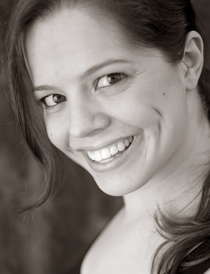On Devotional Reading | By Traci Brimhall

A few months ago, one of my friends and I decided to enter into a five-year relationship with Emily Dickinson. The rules were broad: read an Emily Dickinson poem each day (starting with number one in the volume of Dickinson’s poetry edited by Thomas H. Johnson), and write 50-100 words about it. The observations didn’t have to be critical. What’s noticed in a poem is important, but what’s more important is the devotion, the daily return to someone’s words.
~
In graduate school, I was an insatiable reader. For two years I tried to read a book a day. There seemed to be so many gaps in my knowledge—gaps I thought I could never fill, gaps that are still there and keep widening—unless I consumed widely and quickly. The hunger grows the more I feed it. I don’t think there’s anything wrong with gorging oneself on poetry, but lately I’ve wanted a different kind of relationship with poems.
~
Sometimes I write this: “Who the hell is this woman and what has she done with Dickinson?” Sometimes this: “I always knew God and math were kissing cousins.” Other days, it is this: “Yes! Yes! I will follow that line anywhere.”
~
Devotion is difficult. I was never any good at prayer. I always had more questions than praises or complaints.
~
There are very few novels I’ve read more than once, but most books of poetry on my shelf have been read anywhere from twice to a dozen times. Poetry lends itself to devotion. As a child, I tried to read the Bible all the way through several times, but I always got tangled up in the why of it. Any time I tried to ask how Cain was able to move to a city after being banished from Eden or why Lot was a person worth saving when he offered to let a crowd rape his daughters, I was told I didn’t have enough faith in God’s infinite plan.
~
Infinity requires devotion, and while I can’t commit to infinity, I have committed to five years of small, daily devotions. When I write tomy friend (the one who has committed to this project with me), I say “you” and I mean her. I say “we” and I mean she and I. I never mean Dickinson, even though she is what we talk about. We are sharing Dickinson, but never at the same time. We have our separate intimacies and then tell them to each other. A writer’s work—and particularly a writer like Dickinson—is so public, so exposed, so excavated, and I want her to be mine, just mine, for a few minutes, for a morning, for five years. I’ve given myself over to a book. I’ve promised myself more questions.
*
NER Digital is a creative writing series for the web. Traci Brimhall is the author of Our Lady of the Ruins (W.W. Norton, 2012), winner the Barnard Women Poets Prize, and Rookery (SIU Press, 2010), winner of the Crab Orchard Series First Book Award. Her poems have appeared in Kenyon Review, Slate, VQR, NER (32.1), and elsewhere. A former Halls Poetry Fellow at the Wisconsin Institute for Creative Writing, she’s currently a doctoral candidate and King/Chávez/Parks Fellow at Western Michigan University. Read Traci Brimhall’s NER poem “Somniloquy.”